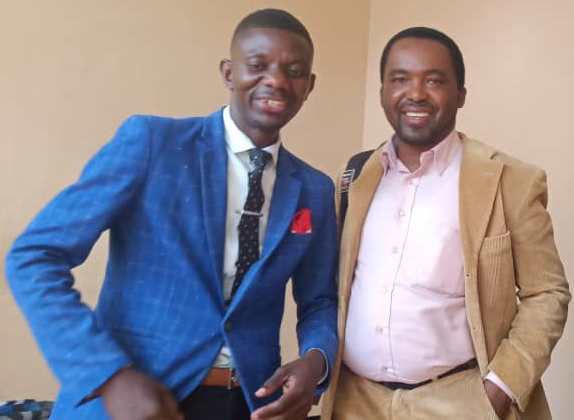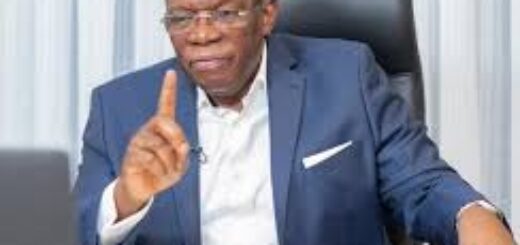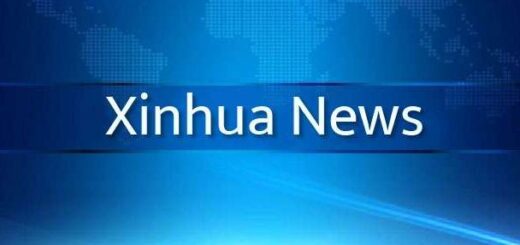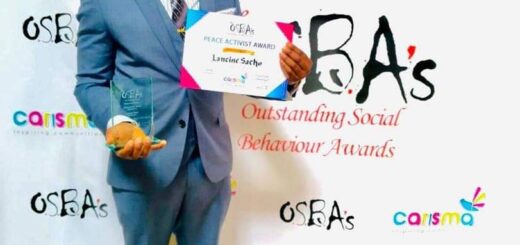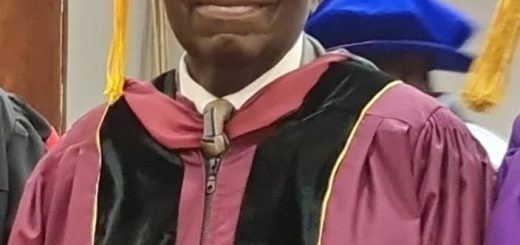H.M. Queen Mathilde of the Belgians visited Ghana from 7 – 9 of February, after being invited by the co-chair of the SDG Advocates, President Nana Akufo-Addo.
H.M. Queen Mathilde of the Belgians delivered a speech at the University of Ghana on 9 February, entitled “The SDGs: A Transformative Agenda for the Future That we Want.”
The speech addressed the key themes of education, health, entrepreneurship, and decent work, all underpinned by the fact that young people are critical stakeholders in achieving the SDGs.
The text of the speech is below.
The SDGs: a Transformative Agenda for the Future That We Want”
Your Excellency President Akufo-Addo,
Vice-Prime Minister,
Vice-Chancellor,
Ladies and Gentlemen,
Dear Students,
First of all, I want to thank His Excellency President Nana Akufo-Addo for inviting me to address you here in Accra, in the beautiful surroundings of the university.
The President and I share a commitment. We were both appointed by the UN Secretary- General to advocate for the Sustainable Development Goals. Your President co-chairs this group. The UN General Assembly adopted the Sustainable Development Goals unanimously, in September 2015. Together the 17 goals cover a broad range of social and economic development issues. The provision of adequate healthcareand education, an end to inequality, decent work for all, water and sanitation, energy, the environment, climate change, and so on. Together they form the roadmap for achieving Agenda 2030. In a nutshell, Agenda 2030 is an ambitious commitment to eradicate poverty and achieve sustainable development worldwide by the year 2030, leaving no one behind.
As a UN Special Advocate for the SDGs, education is one of the areas on which I particularly focus. So I am especially pleased to be able to address you here, at the university. I believe that access to quality education is a fundamental element of sustainable development. Without it, individuals cannot get decent jobs. They remain poor and unable to contribute to the economic growth of their community. As a result, their communities do not flourish and, ultimately, neither do their countries. Without education for all, we waste a considerable part of our biggest potential resource: our workforce.
But what is quality education? Infrastructure is important, of course. Children need schools within a reasonable distance of their homes. Schools that provide shelter from the rain and decent sanitary facilities. Books and other teaching resources are necessary. But undoubtedly, the most crucial element of education is the teachers. Teachers need to have been adequately educated themselves. They need to have been trained to inspire children and young people, to pass on useful knowledge to them.

H.M. Queen Mathilde of the Belgians visits Promush, an enterprise focused on sustainable production, and employment of youth and women.
Mr. President, Ladies and Gentlemen,
We are lucky to live in the 21st century. In this increasingly digital world, the new media offer a wealth of resources. Used wisely, the internet is a rich source of information and knowledge. But new media also offer exciting new possibilities for e-learning, both in the classroom and as a powerful tool for broadening access to education.
As centres of higher education and research, Universities have a particularly important role to play in achieving the SDGs. So I urge you to integrate the SDGs into your thinking, into your courses, into your research. You young people in the audience today will be the leaders of tomorrow. The leaders of education, medicine, science, industry, public administration – whatever your field is. You are young, and you have the privilege to be well educated. You have been taught to think, to challenge the status quo, and to innovate. You have dreams and convictions. You are ambitious and idealistic. You will have a chance to change the world for the better. Some of you will change it locally, on a more limited scale, and others on a larger scale, in more far-reaching ways. Whatever and wherever your contribution, it will count. As the saying goes, little drops of water make a mighty ocean. The future is yours, and I am convinced that young people are crucial to the achievement of the SDGs. The confidence you have in your own skills and capacities and the trust that your country puts in you will be your strongest resources for this undertaking.
Besides education, my other particular interest is the provision of quality healthcare for all. Possibly, healthcare is even more fundamentally important than education. For if people are not healthy, they do not have the energy either to study or to work effectively.
Comprehensive access to vaccines is also essential, if we are to avoid unnecessary disability or death from treatable diseases.
Once again, universities have an essential role to play. In training doctors, nurses and paramedical staff. In researching new treatments and drugs. And again, the new media are a vital resource. Doctors and other healthcare workers in remote areas can use their mobile phones and the internet to get help and support, when they are confronted with difficult cases.
Yesterday I learned about a very interesting and inspiring initiative, called Telemedicine.
Other SDGs overlap with healthcare, of course. It is very important to end hunger and food insecurity. Malnutrition in children results in stunting. This is not only disastrous for the development of individual children, it also risks having a negative impact on economic growth and on the development of a whole society. Likewise, hygiene and access to safe water sources are essential for good health. So, too, are peace, employment and decent living conditions.
An important aspect of health, which is often neglected, is mental health. As I speak, about 450 million people around the world are dealing with some type of mental disorder. So we must ensure that we address the issue and invest sufficiently in mental healthcare. We must consider the wellbeing of all people.
Here, too, I want to draw special attention to the trauma caused by armed conflict. It can continue to have adverse effects a long time after the violence has ended. Children who grow up in a violent environment are particularly affected. We must make sure we equip them to take their place in society too. They must not be left behind.
Whether this is your field or not, each and every one of you can help. You can help to change attitudes. Andnot just to mental health, but to all the issues covered by the goals. You, too, can act as advocates, by talking about the SDGs to your friends and family.
Just now I said that the SDGs were all interlinked. Lack of quality healthcare impacts education opportunities, and both impact the chances of getting a decent job. Lack of decent work then makes it impossible to get out of poverty. At the same time, our health, education and employment opportunities may also be affected by inequality. Women suffer at least some inequality or discrimination in most parts of the world. And in some places, they are severely limited in their freedom and access to quality education, healthcare and employment.
As President Akufo-Addo said recently, “scaling up efforts to empower women and to expand their opportunities is key to achieving development and prosperity. It is one of the best ways of mitigating poverty and guaranteeing progress and prosperity. “
There are other inequities too: poverty, lack of peace, environmental problems all deprive people of equal opportunities. For the first time, the SDGs are an attempt to tackle all the different aspects of sustainable development and to take a comprehensive approach towards it. The accent, in this era of globalisation, is on tackling these issues all over the world. In highly industrialised countries, we need to find solutions to environmental pollution and climate change, just as we do in economies that are more agrarian. And there are impoverished people living on the margins of society in countries where average incomes are high, as well as in countries where they are comparatively low.
Finally, the SDGs put the onus on all of us. In partnership or alone, individuals, governments, the private sector and civil society, it is our responsibility to do what we can to promote sustainable development and improve the world.
Mr. President, Ladies and Gentlemen,
As we have seen, new media are key tools for sustainable development, tools to which almost all of us have access these days. They can be used in every area – and to great effect. Following my discussions with President Akufo-Addo, I am very interested in the efforts deployed here in Ghana in the field of e-administration. This cutting-edge approach simplifies and speeds up contacts between citizens and the administration, as well as reducing costs.
I am also particularly looking forward to meeting the clients of a homegrown Ghanaian social enterprise this afternoon. Farmerline was co-founded by Alloysius Attah in 2013. Mr Attah was brought up on a farm and saw for himself how farmers struggle to make a living. Using a simple voice messaging platform, his software startup sends agricultural information to over 200,000 farmers. All the farmers need, to receive weather forecasts, and information on market prices, financial services and agricultural best practices, is a mobile phone. This is a truly inspiring example of a young social entrepreneur, who is promoting sustainable development and changing the world for the better. His company not only provides him with an income, but helps his fellow countrymen develop their farming skills, make their own incomes, and produce more food to feed others. The Belgian King Baudouin Foundation was so impressed that it awarded Farmerline its African Development Prize last year. This innovative example of social enterprise is definitely worth following.
I wonder how many of you will become entrepreneurs.
Dear students,
I came here today to talk about the SDGs because I truly believe they offer us a framework within which to improve life for everyone, sustainably. The Agenda sets 2030 as our target for achieving the Goals. 2030. It sounds a long way off, doesn’t it? But we still have a lot of work to do. We cannot afford to be complacent about what we have achieved so far. Extreme poverty is decreasing. But there are still far too many people struggling to make a living. The climate is changing – faster and more radically than our actions to prevent it. New media are changing the way we live. They offer incredible opportunities in terms of education, knowledge, healthcare and communication. But they also involve risks.
The SDGs show us that all the different aspects of development are intertwined. We must take a comprehensive approach. And we must all take our responsibility to achieve the goals. Every effort counts.
You sit here, today, on the threshold of your working lives. The future is yours.
How will YOU use your skills – now and tomorrow – to make the world a better place?
I thank you.





